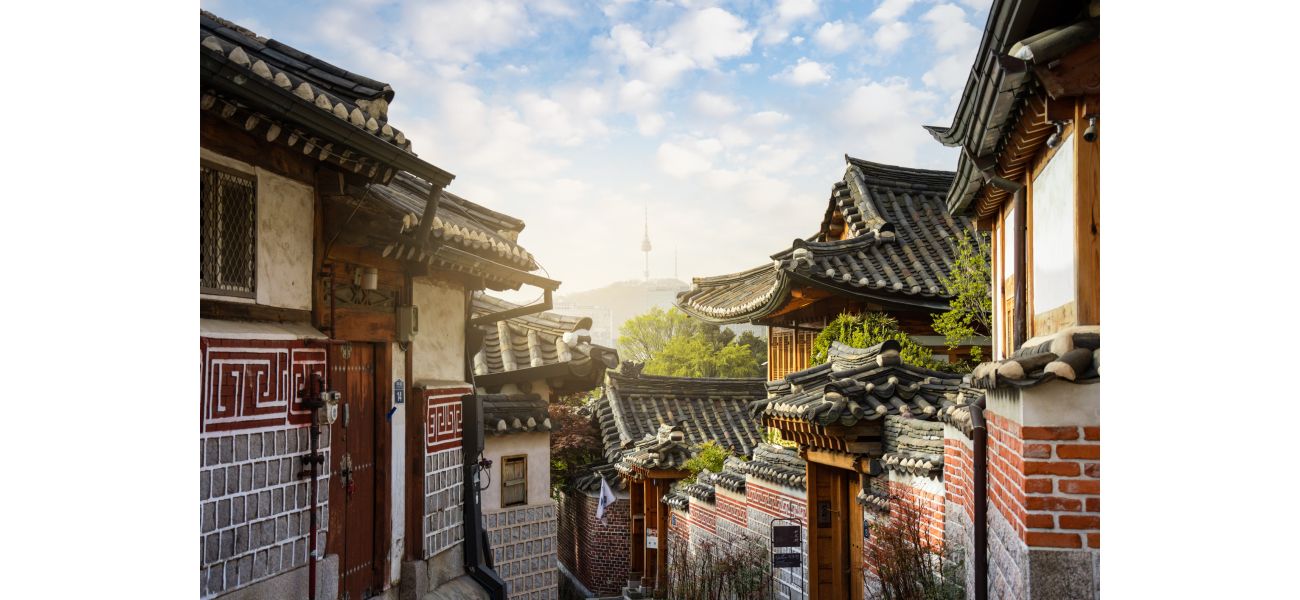Tourists must adhere to a 5pm curfew at this popular holiday spot.
Fighting overtourism is the current challenge.
October 31st 2024.

The city of Seoul, with its modern buildings, vast green spaces, and bustling markets, is experiencing a surge in international tourism. This has brought in a record number of visitors, but unfortunately, it has also caused some problems for the residents. Complaints have been pouring in about noise, littering, public urination, and invasion of privacy in the residential areas of the city.
One of the most affected areas is Buckchon Hanok Village, a popular tourist spot. The number of tourists visiting the village far exceeds the number of residents, causing much strain on the community. In response to this issue, South Korea has come up with a solution. They will be implementing a curfew in Buckchon, restricting tourists from accessing certain parts of the village between 5pm and 10am each day. This rule will be tested in November and officially launched in March next year. Those who break the curfew will face fines of up to 100,000 won.
Buckchon Hanok Village, located 4km away from the city center, is known for its narrow alleyways and traditional 'hanok' houses dating back to the Joseon dynasty. Last year, the village welcomed around 6 million visitors, a significant difference compared to its small resident population of 6,100. The head of the Jongo district, Chung Moon-hun, states that the main goal of this new initiative is to protect the rights of the residents. The restrictions may also be adjusted if necessary, according to Reuters reports.
While this curfew is seen as a positive step by some, not everyone is in favor of it. Some residents are doubtful of its effectiveness. Kwon Young-doo, the owner of Buckchon Asian Cultural Art Museum, who has been living in the village for 18 years, questions the impact it will have on tourism. He says, "Who would want to visit? They'll leave with a bad impression of South Korea."
In fact, some residents have already chosen to leave due to the increasing tourist traffic. According to the Jongo district office, the village's population has dropped by 27.6% in the past 10 years. This is a concerning trend for the community.
South Korea is not the only destination facing the issue of overtourism. In San Sebastian, Spain, protests have erupted against the local authority's handling of excessive tourism. The city of Marseille in France has also proposed new restrictions on short-term rentals in an attempt to tackle overtourism. The mayor, Benoît Payan, believes that landlords who rent out holiday apartments on Airbnb should also provide long-term rentals to balance out the impact of tourism.
These efforts come after a summer of anti-tourism protests across Europe and a wave of new legislation aimed at managing tourists. This includes restrictions on taking selfies in certain areas, higher tourist taxes, fines for reserving sun loungers, and limited access to beaches. As the issue of overtourism continues to be a global concern, it is important for destinations to find sustainable solutions that benefit both tourists and residents alike.
Do you have a story to share about overtourism? We would love to hear from you. Please email us at [email].
One of the most affected areas is Buckchon Hanok Village, a popular tourist spot. The number of tourists visiting the village far exceeds the number of residents, causing much strain on the community. In response to this issue, South Korea has come up with a solution. They will be implementing a curfew in Buckchon, restricting tourists from accessing certain parts of the village between 5pm and 10am each day. This rule will be tested in November and officially launched in March next year. Those who break the curfew will face fines of up to 100,000 won.
Buckchon Hanok Village, located 4km away from the city center, is known for its narrow alleyways and traditional 'hanok' houses dating back to the Joseon dynasty. Last year, the village welcomed around 6 million visitors, a significant difference compared to its small resident population of 6,100. The head of the Jongo district, Chung Moon-hun, states that the main goal of this new initiative is to protect the rights of the residents. The restrictions may also be adjusted if necessary, according to Reuters reports.
While this curfew is seen as a positive step by some, not everyone is in favor of it. Some residents are doubtful of its effectiveness. Kwon Young-doo, the owner of Buckchon Asian Cultural Art Museum, who has been living in the village for 18 years, questions the impact it will have on tourism. He says, "Who would want to visit? They'll leave with a bad impression of South Korea."
In fact, some residents have already chosen to leave due to the increasing tourist traffic. According to the Jongo district office, the village's population has dropped by 27.6% in the past 10 years. This is a concerning trend for the community.
South Korea is not the only destination facing the issue of overtourism. In San Sebastian, Spain, protests have erupted against the local authority's handling of excessive tourism. The city of Marseille in France has also proposed new restrictions on short-term rentals in an attempt to tackle overtourism. The mayor, Benoît Payan, believes that landlords who rent out holiday apartments on Airbnb should also provide long-term rentals to balance out the impact of tourism.
These efforts come after a summer of anti-tourism protests across Europe and a wave of new legislation aimed at managing tourists. This includes restrictions on taking selfies in certain areas, higher tourist taxes, fines for reserving sun loungers, and limited access to beaches. As the issue of overtourism continues to be a global concern, it is important for destinations to find sustainable solutions that benefit both tourists and residents alike.
Do you have a story to share about overtourism? We would love to hear from you. Please email us at [email].
[This article has been trending online recently and has been generated with AI. Your feed is customized.]
[Generative AI is experimental.]
0
0
Submit Comment





